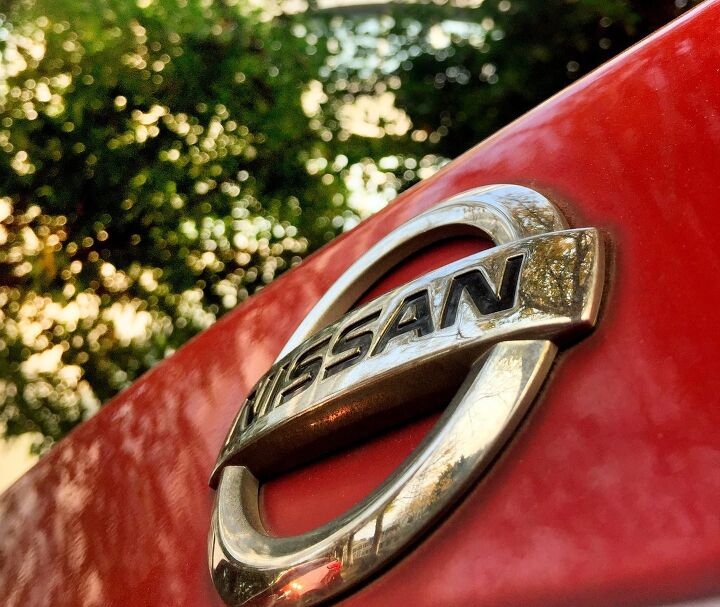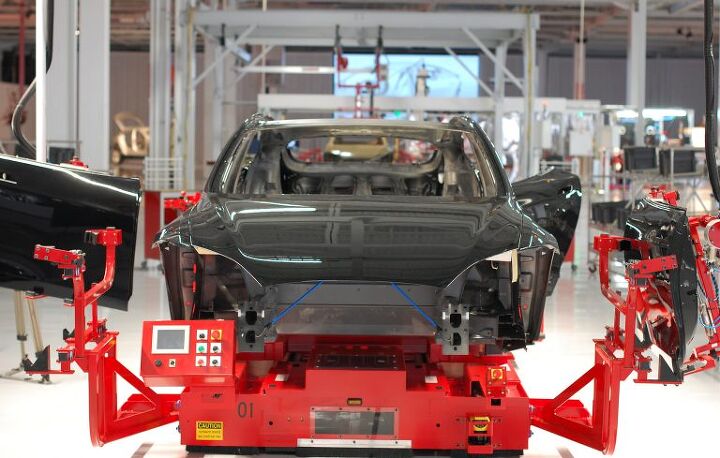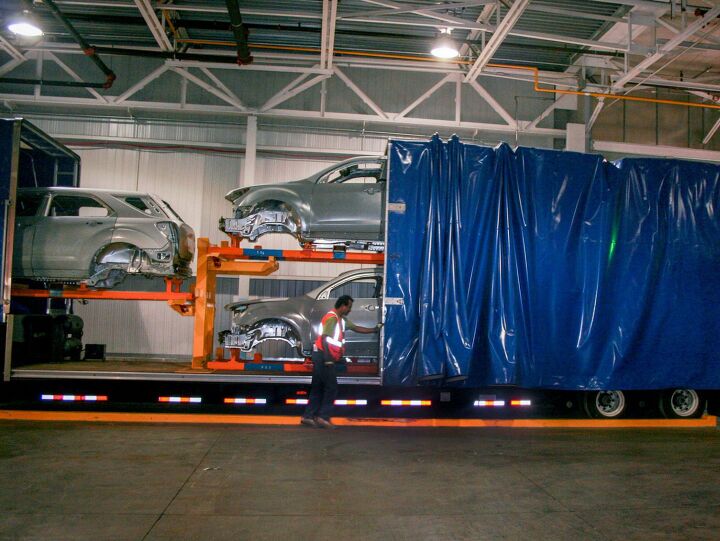#UnionNews
Nissan Accused of 'Nastiest Anti-union Campaign' in Modern U.S. History
The United Auto Workers has accused Nissan of illegally intimidating workers at its Canton Manufacturing and Assembly Plant in Mississippi, calling its activities one of the “nastiest anti-union campaigns in the modern history of the American labour movement.” The alleged misdeeds include running anti-unionization videos on loop in factory break rooms and convincing plant managers to pull workers aside to discourage them from voting in favor of the UAW this Thursday and Friday.
However, if Nissan is guilty of rabid anti-union measures, the UAW is likely guilty of countering the company with its own door-to-door campaign. Southern states haven’t been as receptive to unionizing as the UAW would like, and the organization has doubled its efforts to get the Canton workers on board, hoping to negotiate higher wages and improved benefits.
Growing Trend: GM Canada Extends Summer Shutdown at Two Factories
General Motors Canada will idle a pair of Ontario factories longer than usual this summer as it struggles with lagging demand. If that sounds familiar, it’s because GM has taken the exact same approach with two factories in the United States.
On Monday, the automaker confirmed it will also be eliminating the overnight shift for Chevrolet Malibu production at its assembly plant in Kansas City. That follows a trio of shift eliminations at three plants in Michigan and one in Ohio since the beginning of the year. It appears that Canadian jobs could now be in danger.
Elon Musk Plans to Perform the Same Tasks as Tesla's Injured Workforce
Elon Musk has taken some rather extreme measures to ensure Tesla Motors’ employees don’t unionize. The CEO has a rigid production schedule he hopes to adhere to and doesn’t want organized labor throwing unforeseen variables into the mix. However, the UAW has made headway in the last twelve months after half-heartedly courting Tesla’s workforce for years.
Musk’s initial opposition came by way of written rebuttals to very specific criticisms regarding workplace safety and pay. He later accused a particularly aggressive critic of being a paid union stooge. Musk then hinted at the prospect of free frozen yogurt and roller coasters once the company approaches profitability.
Now, he’s apparently decided to reenact the circumstances of specific work-related injuries to prove the company is taking the appropriate safety precautions (or to sniff out areas needing improvement). It’s bizarrely parental but also kind of endearing, if you forget about the union angle.
Hyundai's Newest Crossover Has Hit a Snag
Hyundai, which found itself lagging behind its rivals in the lucrative crossover and SUV market and figured it should do something about it, is having trouble getting its desperately needed subcompact crossover into production.
The 2018 Kona, which we’ve so far seen only a portion of, is part of a better-late-than-never product push by the Korean automaker. A new small crossover was needed to to mine a growing segment and boost Hyundai’s flagging U.S. sales, but the reality of building cars in Korea has thrown up a roadblock.
Tesla Releases Statement on Worker Safety Days Before Scathing Report
In the face of what it describes as “a concerted and professional media push intended to raise questions about safety at Tesla,” the California electric automaker has attempted to counter an apparent unionization tactic.
In a May 14th blog post titled “Creating the Safest Car Factory in the World,” Tesla said it was contacted by numerous media sources claiming to have spoken with similar workers at its Fremont assembly plant. The automaker sees this as an attempt by both the United Auto Workers and Tesla employees intent on organizing the plant to use instances of workplace injury as an organizational tool.
This morning, the story Tesla was working to get ahead of landed in The Guardian.
Volkswagen Accused of Unfair Labor Practices at Tennessee Plant
The National Labor Relations Board has again accused Volkswagen of unfair labor practices, stating the automaker increased health insurance premiums and altered working hours of employees who voted for union representation at its Chattanooga, Tennessee factory.
The facility — VW’s only U.S. assembly plant — produces the Passat and new Atlas SUV. A small portion of skilled-trade employees voted in 2015 to be represented by the United Auto Workers, but VW is claiming they shouldn’t speak for the entire workforce.
However, the NLRB says the UAW’s collective-bargaining rights for the select workers who maintain the plant’s automated machinery can’t be superseded by the federal appeals court case.
“Wages, hours, and other terms and conditions of employment of the Unit … are mandatory subjects for the purposes of collective bargaining,” reads the complaint.
Keep Us In Business or We'll Blow Everything Up: French Supplier to Automakers
They do protests a little differently in France. A French supplier of brackets, bumper and steering column components to Renault and PSA Group might soon close down for good, so the shop’s unionized employees figured it would be best to turn its protest efforts up to “11.”
That apparently means destroying the equipment used to make those essential parts, as well as threatening lives by rigging the factory to explode.
So. Much. Passion.
Second Shift Coming as GM's Oshawa Plant Shifts Towards Trucks
A General Motors plant once described as being on life support might not be out of the woods yet, but there’s a new ray of light at Oshawa Assembly — Canada’s oldest auto factory.
The plant’s supply of models has dwindled in recent years, with only the Chevrolet Impala and aging Cadillac XTS sharing space with the soon-to-depart Buick Regal. For years, Oshawa’s Consolidated Line handled final assembly of Chevrolet Equinox overflow models from GM’s CAMI plant, but supply will dry up this summer as the next-generation model becomes a CAMI-only deal.
Enter a hazy GM promise to deliver pickups for final assembly. While GM hasn’t confirmed that Chevrolet Silverado or GMC Sierra models are destined for Oshawa, at least one truck certainly is. The first truck shift hasn’t yet begun, and already the local union is alerting workers to a second.
Tesla Strives to Avoid German Strike and Maintain Model 3 Production Date
It’s no secret that the success of Tesla’s forthcoming Model 3 will dictate its position as a mainstream automaker for the foreseeable future. Tesla’s current status as the most valuable carmaker in the United States is riding, almost entirely, on the problem-free assembly of its “affordable” EV this summer. So, when one of its German suppliers threatened to go on strike earlier this month, you can imagine the series of panic attacks CEO Elon Musk probably suffered.
Last week, the company’s recently acquired industrial robotics unit Grohmann began labor negotiations over insufficient wages and Tesla’s decision to suspend all contracts that didn’t pertain specifically to the Model 3. And, to ensure things went his way, Musk has become directly involved in the process.
PSA to Opel: We'll Go Easy on You Guys, Honest!
Opel autoworkers and executives worried that a French takeover will see their pretzels and bratwurst replaced by baguettes and brie can rest easy, or so the automaker looking to buy their company claims.
France’s PSA Group, which could submit a bid to buy Opel and sister division Vauxhall this week, would give the German automaker the autonomy it desperately craves, the company’s CEO told labor reps and Germany’s chancellor.
That elongated “Z” won’t become a fleur-de-lis.
UAW Could Soon Tell You to 'Buy American,' But Will Buyers Listen?
Before the end of the 1980s, disenchanted drivers were voting with their wallets in ever greater numbers. Family sedan buyers, burned by the quality control issues of the late 1970s, turned their attention to the Toyota Camry and Honda Accord, while German automakers increasingly carved off a larger slice of the premium segment pie.
In many cases, the buyers who turned their backs on domestic vehicles stayed in their new camp for years, buying another, and then another Japanese or German car. Luring them back remains a difficult task, as stigma often fades at a slower rate than quality improves.
“Buy American” campaigns are nothing new, but President Donald Trump’s ascent to the Oval Office has spurred a newfound focus on the health of the Detroit Three automakers. In a bid to bolster that health, the United Auto Workers union is on the verge of telling you to drive past all those import dealers.
Come home to America.
Union Head Calls for Trump's Politics in Wake of Canadian GM Plant Layoffs
Workers at General Motors’ CAMI Assembly plant in Ingersoll, Ontario, are reeling after the automaker announced the loss of more than 600 jobs.
The unexpected move comes after the facility recently gave up production of the next-generation GMC Terrain to focus solely on the Chevrolet Equinox. The 2018 Terrain’s new home? Mexico.
As expected, the autoworkers’ union is livid, having been told nothing about job losses during the changeover.
FCA Minivan Plant Avoids Supplier-related Shutdown, Gets Hit With Another
Maybe God has it out for Windsor, Ontario. Or maybe fate has a sense of irony, at least when it comes to Fiat Chrysler Automobiles.
The automaker’s minivan plant, which builds the Dodge Grand Caravan and Chrysler Pacifica, handily sidestepped a supplier-related shutdown this week, only to be unexpectedly hit with another. The assembly lines go dark in Windsor next week.
TTAC News Round-Up: Even When Volkswagen Group Wins, It Loses
Volkswagen’s expensive diesel emissions scandal has forced cost cutting on anything that isn’t electric and its rally team is next on the chopping block. Quitting while ahead is ideal but abandoning a program due to financial woes and public shame after a hot streak doesn’t exactly smack of going out on top.
That, Toyota invents a box that allows anyone to use your car, Tesla’s zero-emission credits may soon be worth less, and Ford makes peace with its Canadian autoworkers at the buzzer… after the break!
Fiat Chrysler, Unifor Clear 'Major Obstacles' Before 11th Hour Contract Deal
A weekend meeting with Fiat Chrysler Automobiles CEO Sergio Marchionne led to a final-hour tentative agreement between the automaker and the union representing Detroit Three autoworkers in Canada, Unifor president Jerry Dias claims.
The deal, announced five minutes before Monday’s 11:59 p.m. strike deadline, means 3,500 Brampton assembly plant workers face a less uncertain future than before.






























Recent Comments